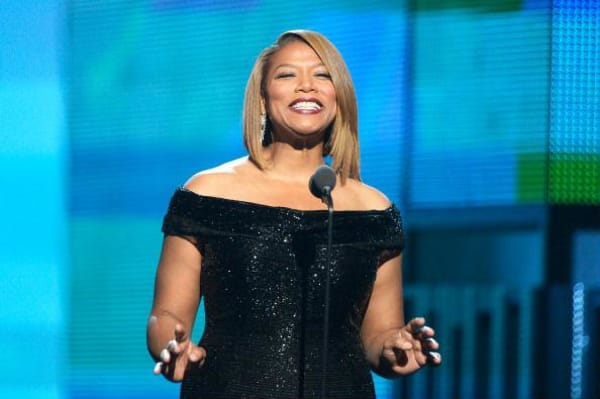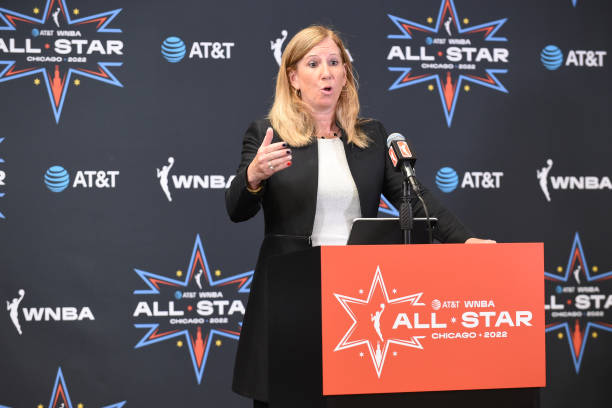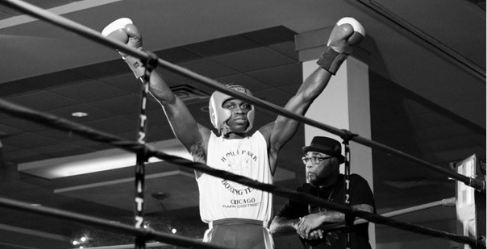Ferguson, Missouri is engaged in an obvious race war between its mostly black neighborhood and its majority white police force (civilians have been murdered and tear gassed). Fortunately, there hasn’t been a black out. To find one, you have to travel across the country to the Little League World Series in Williamsport, Pennsylvania.
When Mo’Ne Davis and The Taney Dragons from Philly play Southside Chicago’s Jackie Robinson West on Thursday night, the winner will advance to meet Las Vegas on Saturday in the U.S. final.
You’ll immediately notice that (probably) for the first time in LLWS history there will be more African-American ballers on the field than any other race. The Chicago squad is all-black, which in itself is unprecedented for little league baseball at this level. For the kids and their coach, however, this is the next logical progression.
Last season the squad advanced to the Great Lakes Championship Game before losing 10-3 against Grosse Point Woods Shores (Mich.) and falling just one game short of Williamsport.
It's been 31 years since a Chicago team made the LLWS, and this is the third straight year the young, Chi-Town sluggers threatened to break through and it finally happened.
Jackie Robinson West has a long-standing baseball tradition fueled by the community’s love for diamond-mining. They advanced to the first round of the 1983 World Series, coached by the late Joseph Haley, who founded the league in 1971, and have finally repeated the feat with his son William now running the league.
The soulful JRW squad, comprised of kids from the 28-team (T-ball to 18-year-olds) league, drawing from the Englewood, Auburn-Gresham, Morgan Park and Washington Heights areas are proof that the African-American spirit is alive and kicking in baseball.
For Haley and the 400-plus kids in the predominantly African-American baseball league, being nice at the sport is normal. He downplays the fact that his team doesn’t look like their opponents. With all of the talk and statistics about declining participation by African-Americans in baseball, JRW is a league that stands as one of the last bastions of serious black youth baseball in America.
There couldn’t be a better platform to showcase African-American kids than the traditionally Caucasian-dominated LLWS. At a time when the value of a black youth’s life is at an all-time low in this country, tonight we’ll see the jewels and future leaders of the black community and beyond, on full display. They are the personification of black achievement, brilliance, confidence, class and human worth. It’s important for the world to see – with all the images that misrepresent young black folks these days – the authentic faces of black America. The faces that may be a bit darker, but still share the same hobbies, dreams, ambition, honest upbringing, loving hearts and million dollar smiles.
Davis is black and a female and one of the best players in the entire tournament, so naturally she’s captivated the nation on a number of levels. Her back-to-back shutouts to spark this LLWS run was legendary and exploded into one of the biggest stories of the summer. Even more impressive than her ability to be cool under pressure and embracing to an unexpected media onslaught, is the grace with which she handled defeat on Tuesday evening against Nevada and the way she fought through without her best stuff. She wound up allowing three runs and six hits with one walk and six strikeouts in one of the most-anticipated games in the illustrious history of the LLWS.
Davis has been a godsend for baseball in this country. Her impact will continue to reveal itself decades from now. She never showed defeat or fear or hesitation during her rough outing, probably knowing all along that she still has a chance to lead Taney to a championship in the double-elimination tournament.
That begins with defeating Chicago. Davis will be eligible to pitch in the championship game should Taney make that happen. Either way, it’s a win-win for black baseball in this country, and in my opinion, a resounding, “Hellooooo. We are back,” vibe that is infiltrating youth baseball. The grass roots efforts that people say are needed to help blacks creep back above 10 percent representation in MLB are in full effect (As I’ve been telling you).
This LLWS has already been a tournament of firsts, with more to come, and gender and race has been at the center of these accomplishments: First female African-American pitcher; First girl to pitch a shutout; First young lady to get an RBI in tournament play; First all-black squad to go this deep in the tourney.
You’ve surely heard the hoopla.
All of these barrier-breaking deeds serve the struggle for national unity and racial equality in a huge way. The accomplishments of Davis and her Philly funksters and Chi-Town’s dark knights of baseball are proof that there’s no such thing as a “white sport” or “black sport.” Sports are the great equalizer and have always been. It’s the one place where color or gender doesn’t inhibit you in any way. You possess the control and whether you succeed or fail is solely on you.
If a black kid didn’t have the inspiration before. If the images of today’s MLB players are too far away too make an impact, then watching a young cat like Pierce Jones (the name alone is dope), who mashes like a young Ken Griffey Jr. and is dripping with swag juice, can work wonders on a young athlete’s mind. Moving forward, Mo'Ne Davis will fall out of our immediate baseball consciousness.She says hoops is her bread and butter sport.
Those Chicago cats, however, play baseball. They’re a straight juggernaut in the Great Lakes Region where they outscored opponents by nearly 50 runs over the regional’s’ seven games. They aren’t thinking about football or basketball season. They won’t be abandoning the game at 14 to play another sport. They are in it for the long haul. They’re committed to the rebirth.



